calsfoundation@cals.org
Midwives
Midwives have filled a clear, important role in Arkansas history by caring for populations of women who were medically underserved. Their role was almost supplanted by physicians in the early twentieth century, but they remain a viable option for women seeking an alternative model of birth care.
Midwives in the hill country of Arkansas were well-respected members of the community who performed their duties as a service to their neighbors. Most were older women whose own children were grown and who had learned their trade from another midwife. They carried a midwife’s book and bag with them to assist during complicated deliveries when no doctor was available. Midwives were very knowledgeable on the subject of childbirth and the many uses of medicinal herbs.
When there was a doctor in attendance, his job was done after the baby’s delivery, with the midwife’s job being relegated to the care of the newborn and the recovering mother. Attending to the woman’s hygiene and household chores, she offered care and support to a new mother.
However, midwives were direct competition for doctors who served the same communities. The physicians of the era between the 1900s and the 1930s sought to bring those patients to them and away from midwives. A campaign to eradicate midwives was fairly successful in most parts of the nation. However, the Ozark Mountains area was administratively inaccessible, leaving the midwives to continue serving mountain communities.
Likewise, the midwives in the Delta continued serving the African American community, who truly had no other option than a home birth attended by a midwife, since Black patients were not welcome in the local hospitals. It was not until the 1950s and 1960s that hospitals had integrated and accepted African American women as patients. Ironically, while African American midwives were the greatest contributors to making licensed midwifery care possible in Arkansas, a very small percentage of Black women use midwives or receive midwifery care in the twenty-first century.
In the 1920s, the Arkansas Department of Health (ADH) realized that eradicating midwifery was an impossible task in the state. Instead, the ADH, under the Sheppard-Towner program, issued permits to those midwives who attended workshops and passed exams to practice midwifery. That posed a challenge for the midwives and the ADH because many of the midwives were illiterate. On July 1, 1945, Mamie Odessa Hale was appointed to the position of midwife consultant for the ADH, responsible for training midwives and promoting their registration. She taught her students how to manage prenatal care, prepare for the delivery, and perform after-care, as well as how to fill out a birth certificate.
In 1983, the Arkansas General Assembly passed Act 838 to officially license and govern the practice of midwifery in the state’s poorest counties. Act 481 of 1987 superseded Act 838 of 1983 and expanded licensed lay midwife (LLM) licensure statewide.
The Arkansas Midwives School and Services (ARMSS) in Fayetteville (Washington County) was co-founded in 1998 by three state-licensed midwives: Kathleen Conway, Bonny Bowen, and Teresa Elder. The school offered an academic program coupled with an apprenticeship model. The national Midwifery Education Accreditation Council (MEAC) accredited ARMSS in the early part of the twenty-first century. A collaborative effort with MEAC and the North American Registry of Midwives (NARM) produced an updated comprehensive testing model that tested skills as well as academic proficiency using national standards. Following the school’s national accreditation, a new license to practice midwifery was introduced into the state of Arkansas. Along with the previous LLM license, a certified professional midwife (CPM) license enabled midwives to practice in Arkansas, as well as in other participating states. In 2005, ARMSS closed after producing seven graduates.
Taking into consideration the new educational and testing standards, the ADH, along with the Arkansas Midwives Association, adopted a revised version of the Arkansas Rules and Regulations in 2007, reflecting a professional, evidence-based midwifery model of care.
By 2017, twenty-seven licensed midwives were practicing in the state of Arkansas. LLMs and CPMs work autonomously and are not affiliated with any hospital. Midwives provide prenatal, delivery, and postpartum care to women wishing to have a home birth. Midwives’ clients are healthy, low-risk pregnant women. A midwife ensures that her client receives the required medical and laboratory testing and assessment from a physician, certified nurse-midwife, or an Arkansas Department of Health clinician, as well as keeping ongoing assessments and records. Midwives in Arkansas obtain approved continuing education hours for license renewal every two years.
In 2021, the Arkansas General Assembly passed Act 607, which removed the longstanding stipulation that nurse-midwives work under the supervision of a physician, establishing full practice authority for nurse-midwives.
For additional information:
Allured, Janet L. “Women’s Healing Art: Domestic Medicine in the Turn-of-the-Century Ozarks.” Gateway Heritage 12 (Spring 1992). Online at http://beckerexhibits.wustl.edu/mowihsp/articles/Ozarks.htm (accessed March 16, 2022).
Bachlawski, Charles Z. “The Heritage of the Mississippi County Nurse-Midwife Service.” PhD diss., Arkansas State University, 2015.
Bell, Pegge. “Making Do with the Midwife: Arkansas’ Mamie O. Hale in the 1940s.” Nursing History Review 1 (1993): 155–169.
Dunn, Ella I. The Granny Woman of the Hills. Branson, MO: The Ozark Mountaineer, 1978.
Froelich, Jacqueline. “Arkansas Midwives, Home Birth Advocates At Pains on New Stricter Midwifery Standards.” Arkansas Public Media. http://arkansaspublicmedia.org/post/arkansas-midwives-home-birth-advocates-pains-new-stricter-midwifery-standards (accessed March 16, 2022).
Hale, Mamie. “Arkansas Midwives Have All-day Graduation Exercises.” The Child 13 (October 1948): 53–54.
Hebda, Dwain. “A Rebirth.” Arkansas Democrat-Gazette, July 5, 2021, pp. 1D, 6D. Online at https://www.arkansasonline.com/news/2021/jul/05/a-rebirth/ (accessed March 16, 2022).
Jones, Avery. “Doula, Midwife Services Expanding in State.” Jonesboro Sun, December 16, 2023, p. A6.
Parks, Michelle “Midwives Offer Mothers Control, Options, Two Say.” Arkansas Democrat Gazette. January 25, 2009, pp. 1A, 15A
———. “Midwives There 2nd Time for Fayetteville Mother.” Arkansas Democrat-Gazette. January 26, 2009, pp. 1A, 2A.
Shelton, Donna L. “The Legacy Midwife: A Native Arkansan Vows to Carry on a Heritage of Healing.” Arkansas Review: A Journal of Delta Studies 54 (December 2023): 203–210.
Maria Chowdhury
Birth Song Midwifery
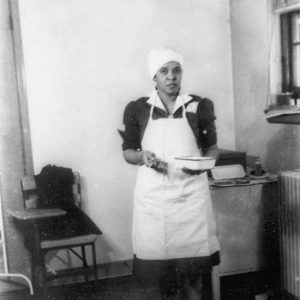 Mamie Hale
Mamie Hale 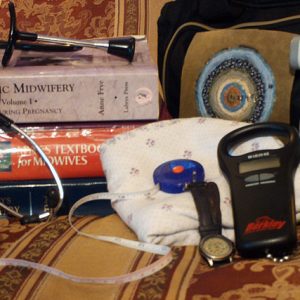 Midwife's Equipment Bag
Midwife's Equipment Bag 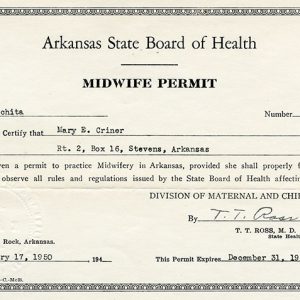 Midwife Permit
Midwife Permit 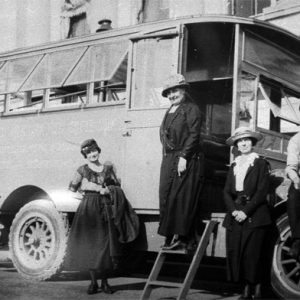 Midwives' Van
Midwives' Van 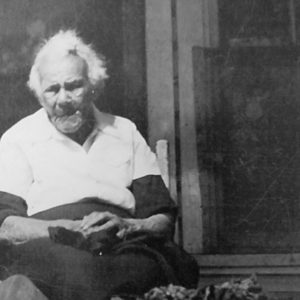 Massoline Moore
Massoline Moore 




Comments
No comments on this entry yet.